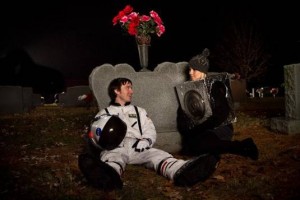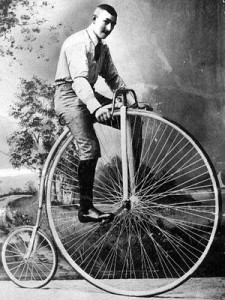 I blame Donald Miller for the most dangerous thing I’ve ever done in a car. During my first semester I made a weekly two hour drive from my undergrad in Searcy, Arkansas to a small seminary in Memphis. A friend of mine had given me a copy a then unknown paperback memoir named Blue Like Jazz. I only had a few chapters left and I couldn’t put it down. I held the book on my steering wheel, and did my best to split my attention between the page and the road as I read the last few pages.
I blame Donald Miller for the most dangerous thing I’ve ever done in a car. During my first semester I made a weekly two hour drive from my undergrad in Searcy, Arkansas to a small seminary in Memphis. A friend of mine had given me a copy a then unknown paperback memoir named Blue Like Jazz. I only had a few chapters left and I couldn’t put it down. I held the book on my steering wheel, and did my best to split my attention between the page and the road as I read the last few pages.
Reading Blue Like Jazz for the first time was like getting a big hug and being told “no, you aren’t crazy.” There were other people in the world struggling with genuine desire to follow Christ in spite of the hypocrisy of their church traditions. The book helped me to verbalize my desire to help lead urban, post-Christendom churches. It’s probably a part of why I chose to move to Austin.
I was lucky enough to see a premier of the movie version of Blue Like Jazz during last week’s SXSW. Despite the fact that the movie suffers from the lack of budget and writing expertise that any indie films does, it captures the honesty and hopefulness that made the book a quick classic.
The film features strong performances from familiar faces, and powerfully captures the intellectualism, natural beauty and post-Christendom baggage of cities like Portland. The fact that plot and characters could be stronger does not take away from a few powerful scenes. The scene where the main character Don explains to his love interest Penney that her honest passion for justice “makes everyone around her feel like shit,” portrays the awkwardness many feel when they engage with Christians. Another scene has Don cuddling, cajoling and comforting his broken hearted lesbian best friend. And of course, there is a confession booth scene, which, despite some unavoidable cheesiness, captures the apologetically apologetic heart of the book.
Blue Like Jazz isn’t destined to win any Oscars. It’s mainly a nod to the fans an experiment for the writers. That being said, it should also be required viewing for American Christians learning to live in a world where they are a minority.










 Tweets
Tweets